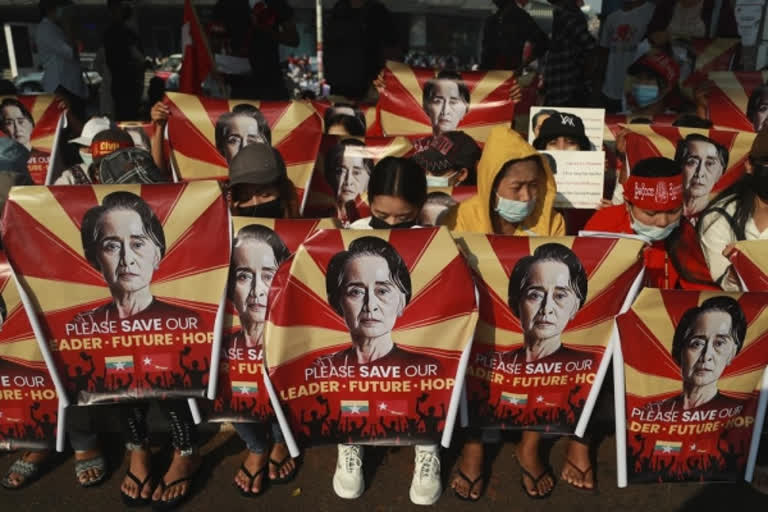United Nation: The U.N. special envoy for Myanmar warned Monday of possible civil war in the country, saying people are arming themselves against the military junta and protesters have started shifting from defensive to offensive actions, using homemade weapons and training from some ethnic armed groups.
Chrisrine Schraner Burgener told a virtual U.N. news conference that people are starting self-defense actions because they are frustrated and fear attacks by the military, which carried out a coup on Feb. 1 against the democratically elected government, and is using “a huge scale of violence.”
A civil war “could happen,” she said, and that’s why for the past three weeks from her base now in Thailand she has discussed with many key parties the idea of starting an inclusive dialogue that would include ethnic armed groups, political parties, civil society, strike committees and the army, known as the Tatmadaw, as well as a small group of witnesses from the international community.
Read:Myanmar EC mulls dissolving Suu Kyi's NLD over allegations of fraud
“Clearly it will not be easy to convince especially both sides to come to a table, but I offer my good offices ... to avoid more bloodshed and civil war which would last a long time,” Schraner Burgener said. “We are worried about the situation and clearly we want that people on the ground ... decide how they want to see the country going back to normal.”
Calling the situation in Myanmar “very bad,” she pointed to more than 800 people killed, over 5,300 arrested, and more than 1,800 arrest warrants issued by the military.
The U.N. envoy also cited reports of unconfirmed deaths, injuries, and damage to houses and civilian property in the town of Mindat in western Chin state, where the junta declared martial law because of armed resistance to military rule. She also pointed to new reports of increased violence in Kayah state — also known as Karenni state — in eastern Myanmar and in southern Shan state.
Myanmar for five decades had languished under strict military rule that led to international isolation and sanctions. As the generals loosened their grip, culminating in Aung San Suu Kyi’s rise to leadership in 2015 elections, the international community responded by lifting most sanctions and pouring investment into the country. The coup took place following November elections, which Suu Kyi’s party won overwhelmingly and the military contests as fraudulent.
Read:US imposes fresh sanctions on Myanmar junta
Suu Kyi appeared in court in person for the first time since the coup on Monday on a variety of charges, amid threats by the military to disband her National League for Democracy party which won 82% of the vote in November’s election. Her lawyer, Min Min Soe, said Suu Kyi wanted to tell Myanmar’s people that the party was founded for them, and “the NLD will exist as long as the people exist.”
Schraner Burgener called the military’s attempt to ban the NLD “unacceptable” and said, “I also hope the NLD will survive because this is the will of the people.”
